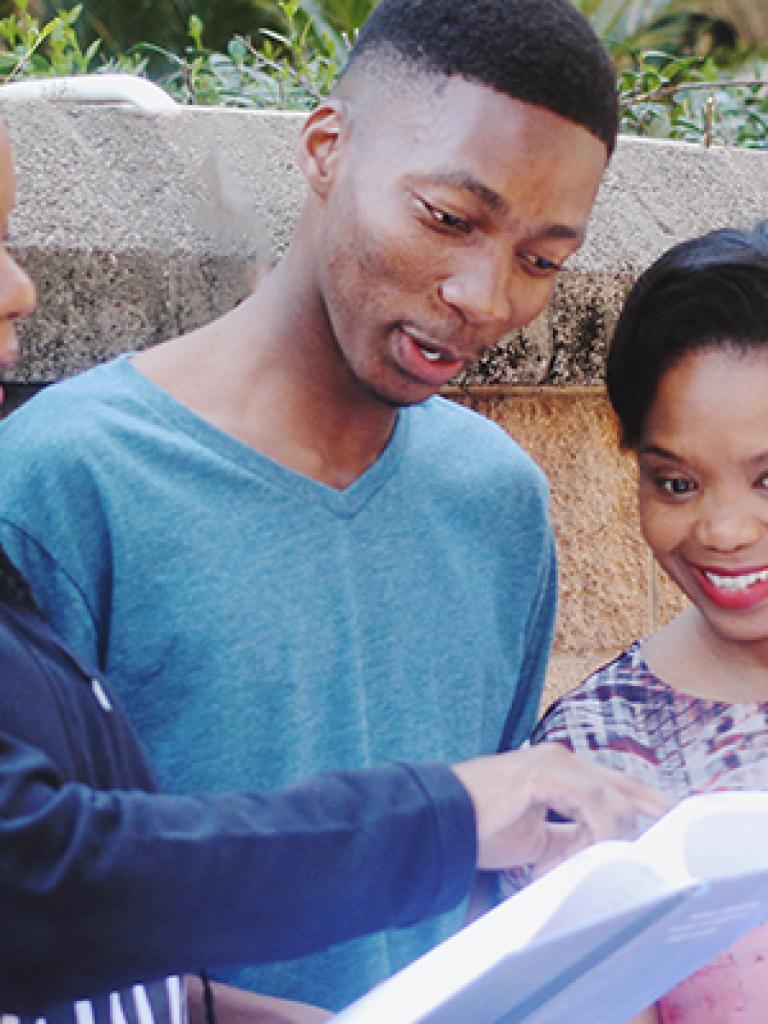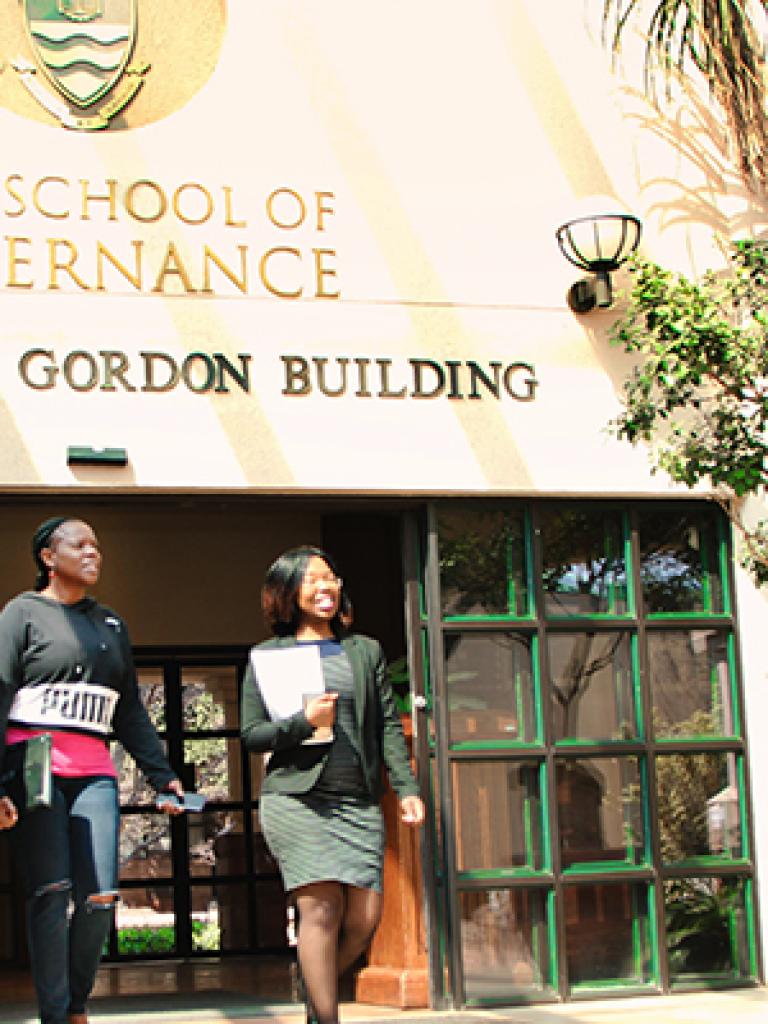Master of Management (Development and Economics)
APPLICATION DEADLINE EXTENDED TO 15 NOVEMBER 2025
The Master of Management by coursework and research report in Governance (Development and Economics) is offered on a part or full time basis.
Our Master of Management curricula provides you with the option to take Governance courses focusing on Governance and Management, Public and Development Sector Monitoring and Evaluation, Public Policy or Development and Economics. While the degree certificate will state ‘Master of Management’, your transcript will reflect your chosen field of study.
Programme Information
Graduates of this degree are able to critically engage and apply a range of analytical and interpretive lenses on complex issues within the broad reach of the state and civil society and their respective roles as social change and development agents.
Core Courses
PADM7009A - Introduction and Orientation
This is a compulsory course for all candidates. This course introduces candidates to the world of study. It prepares them how to balance the demands of work, studying and private life. The course is structured to allow degree convenors to discuss the design and overall learning outcomes of a particular degree programme and how it impacts their work and career. This module - which has no credits - introduces candidates to the Wits Computer and Library Systems. The course also introduces candidates to group dynamics and how to avoid plagiarism.
PADM7213A - Research Report
A candidate for the degree of master must submit for examination an electronic copy of her/ his dissertation or research report via email or any other electronic platform designated by the faculty office. In exceptional circumstances the examiner may request a hard copy of the dissertation or research report. In such a case, the candidate will be required to provide a bound hard copy or copies, together with the electronic version. Copies must be in a format that, in the opinion of the Senate, is suitable for submission to the examiners. Prior to graduation, a candidate must submit a final, corrected electronic copy of her/his dissertation or research report via email or any other electronic platform designated by the faculty office.
PADM7214A - Qualitative Research Methods
The course introduces participants to various approaches to designing and conducting qualitative research and analysing qualitative data. It focuses on selected research approaches to prepare participants to undertake qualitative research. Key topics include qualitative research paradigm assumptions, qualitative research designs/methods, various qualitative data gathering techniques, approaches and techniques for qualitative data analysis, ethics in conducting qualitative research and evaluating qualitative research.
PADM7215A - Quantitative Research Methods
This course will introduce you to quantitative research methods as they are used in the social sciences. It takes its starting point in the learnings achieved on the Analytical Methods course and moves into quantitative survey methods, including survey design, questionnaire construction, sampling, and analysis of survey data. The course focuses on hypothesis testing using multivariate regression analysis. It also covers the formulation of research questions and hypotheses in the context of quantitative research methods. Emphasis will be placed on application, which means we will practice our skills on real data using statistical software.
PADM7216A - Governance and Policy
Governance is a “contested concept” and the ideas that emerge from this engagement serve as a foundation for an analysis of the policy making and implementation. The role of governance, in whatever form, will be used a heuristic for engaging with “wicked problems”. Are conventional approaches to governance and policy adequate for addressing complex multi-dimensional social issues? New thinking on governance and policy in relation to wicked problems will result in alternative approaches to governance and policy respectively, with a focus on “learning governance” and “policy design” respectively. Outcome: understand the limits and challenges of governance and through critical thinking engage alternative models of governance and modes of policy making.
PADM7248A - Research Proposal
This research proposal course provides a theoretical and conceptual understanding of research paradigms and processes and applies such an understanding to a real life research problem which forms the basis of a preliminary research proposal which will lead to a completed research report. The course explores how a research topic is developed, and how a knowledge gap is identified within the selected subject field. The course also explains how a well-developed research proposal should also include sampling techniques, design, methodology, limitations, and logistics.
Fundamental Courses
In addition a candidate must complete the following fundamental courses based on the student's stream of interest.
PADM7226A - Political Economy of Development
Political Economy locates governance within the socio-economic structures of global capitalism. The course thus focuses on the different levels or scales of governance and how the changing fortunes of global capitalism constrain or impact on the exercise of governance. Key concepts such as accumulation by dispossession are provided in the course to assist us in our theorisation of the political economic context. Our understanding of these constraints is deepened through a historical account of the architecture of global (and regional) governance. We discuss the hierarchies of state power, regional development and regional geometries of power. The course introduces the concepts of Eco-Indigeneity and neo-patrimonialism in an endeavour to conceptualise the African developmental context with reference to the Continent’s own endogenous development. The suppression of indigenous knowledge as a site of socio-economic innovation and governance is explored as we seek solutions to enduring developmental challenges of inequality and poverty. Analyses of the political economy of development are also gendered in particular ways. We review key concepts related to women, feminism and development with reference to case studies in food security and the mining sectors. The objectives of the course are (i) to deepen our understanding of the way in which global accounts of capitalist development are patriarchal in their ontological underpinnings; (ii) generate the capacity to analyse development at different scales (or levels) – global, continental, regional, national and local; and (iii) the course will aim to test the capacity to apply the concepts and theory acquired over the duration of the course with a number of seminal case studies.
PADM7227A - Public Finance
The proposed ‘Public Finance’ course will include advanced analysis, inter alia, of the following issues: public expenditure and social policy; national planning, the budget and development; poverty and service delivery; taxation and inequality; taxation of wealth; and fiscal policy and the national debt. Outcome: Enhanced understanding of a range of public finance issues to arm public servants more broadly to engage with National Treasury on a more informed basis.
Elective courses
A candidate must also complete one elective course from List A below:
PADM7232A - Economics and Public Policy
This course is a critical examination of the interplay between economics and public policy. It includes the following topics: Economics teaching vs. Economics Policy; Debunking the notion that Economics is a Science – quantitative analysis vs. mathematical modelling; market failure vs. government failure; the complementarity (or lack of) in macroeconomic policy; the labour market and the minimum wage; poverty and inequality; industrialisation policy.
PADM7239A - Impact Evaluation
This course introduces candidates to a variety of tools for verifying and improving effectiveness, relevance, sustainability, and efficiency of development interventions. Development interventions are those which intend to bring about change, and whether or not such change is achieved is a crucial developmental and public policy question that should be answered. Technically, this means going beyond accounting for inputs, overseeing activities, and producing outputs to assessing outcomes and impact. Among others, figures from impact evaluations provides for evidence-based policy.
PADM7247A New Tools for Complex Public Policy Challenges
This course covers alternative approaches to thinking about economic problems by exploring how the challenges faced by governments have grown in complexity and how the current economic public policy tools are increasingly proving to be incapable of addressing the intricate and interconnected nature of economic problems. The course explores the need to create new public policy tools to understand these economic problems and reviews the critiques of conventional economic theory and methods. The course also examines the historical roots of heterodox traditions and introduces the framework of ‘complex adaptive systems’. It expands on the current traditional economic tools and critically examines whether these are relevant to the South African context.
- An honours degree, postgraduate diploma with a minimum of a 65% average. This could be a degree from WSG or a Master’s degree in a cognate (similar) discipline. Particular attention is paid to the marks awarded for the research component/long paper of the degree.
You will be required to submit the following documentation:
- A brief letter of motivation indicating why you would like to study for your Master of Management at the Wits School of Governance.
- A curriculum vitae, detailing your degrees, your employment experience.
- Official transcripts of your qualifications showing degree, courses and results (if you are still studying for a qualifying degree, please provide your interim mid-year results).
- Your graduation certificates (certified copies and then originals).
- Verification and comparison of any foreign qualifications from the South Africa Qualifications Authority (SAQA).
- IELTS Language Proficiency scores (if your previous qualification was not through the medium of English)).
- Applications are handled centrally by the Student Enrolment Centre (SEnC). Once your application is complete in terms of requested documentation, your application will be referred to the relevant School for assessment. Click here to see an overview of the Wits applications process.
- Please apply online. Upload your supporting documents at the time of application, or via the Self Service Portal.
- Applicants can monitor the progress of their applications via the Self Service Portal.
- Selections for programmes that have a limited intake but attract a large number of applications may only finalise the application at the end of the application cycle.
Please note that the Entry Requirements are a guide. Meeting these requirements does not guarantee a place. Final selection is made subject to the availability of places, academic results and other entry requirements where applicable.
International students, please check this section.
For more information, contact the Student Call Centre +27 (0)11 717 1888, or log a query at www.wits.ac.za/askwits.
Click here to see the current average tuition fees. The Fees site also provides information about the payment of fees and closing dates for fees payments. Once you have applied you will be able to access the fees estimator on the student self-service portal.
For information about postgraduate funding opportunities, including the postgraduate merit award, click here. NRF bursaries: The National Research Foundation (NRF) offers a wide range of opportunities in terms of bursaries and fellowships to students pursuing postgraduate studies. External bursaries portal: The Bursaries South Africa website provides a comprehensive list of bursaries in South Africa.




